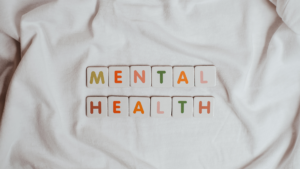Seasonal Affective Disorder (SAD) is a type of depression that typically occurs at the same time each year—most commonly during the autumn and winter months when daylight hours decrease—sapping your energy and making you feel moody. The symptoms of SAD can vary in severity but often include feelings of sadness, hopelessness, and despair. Individuals may experience low energy levels, fatigue, and difficulty concentrating. Changes in appetite and sleep patterns are also common, and additionally, individuals with SAD may withdraw from social activities, experience irritability, and have difficulty enjoying activities they once found pleasurable.
The exact cause of SAD is not fully understood; however several factors may contribute to its development. One theory suggests that reduced exposure to sunlight during the winter months may disrupt the body’s circadian rhythm (internal clock) and lead to changes in serotonin levels, a brain chemical or neurotransmitter that regulates mood, and melatonin which plays a role in sleep patterns. Additionally, individuals with a history of depression or a family history of mood disorders may be at an increased risk of developing SAD.
Fortunately, there are several effective treatments and support options available for individuals with SAD. Light therapy, also known as phototherapy, involves exposure to bright artificial light through a lightbox or visor for at least 30 minutes each day. While full-spectrum fluorescent light is used in most light therapy equipment, other colours of light, such as red, blue, and green, may also have therapeutic effects. Psychotherapy, particularly cognitive-behavioural therapy (CBT), can help individuals identify and change negative thought patterns and develop coping strategies to manage symptoms. In some cases, medication may also be prescribed, especially for individuals with severe or persistent symptoms.
There are several self-care strategies that individuals with SAD can incorporate into their daily routine to help alleviate symptoms. Regular exercise, spending time outdoors during daylight hours, maintaining a healthy diet, and practising relaxation techniques (meditation, yoga, tai chi) can all be beneficial. Building a support network of friends, family, or specific support groups can also provide emotional support and encouragement during difficult times.
Survivors of domestic, family, and sexual violence may be more susceptible to SAD due to the complex interplay of trauma, stress, and psychological factors. While research specifically examining the prevalence of SAD among survivors of trauma is limited, several factors suggest they may be at an increased risk compared to individuals without trauma histories.
- Trauma-induced vulnerabilities heighten levels of stress, anxiety and depression and can intensify the impact of seasonal changes on mood and well-being .
- Trauma can disrupt the coping mechanisms and strategies used to manage stress and regulate emotions.
- Survivors of trauma can often experience hypervigilance, the state of being highly or abnormally alert to potential danger or threat, which can heighten the impact of SAD.
- The aftermath of trauma often includes disruption to interpersonal relationships and support groups contributing to an increase in feelings of loneliness, isolation, and distress, especially during the Winter months when socialising is often limited.
While survivors of domestic, family, and sexual violence may be at an increased risk for SAD, it’s essential to recognise that individual experiences vary widely, and not all survivors will develop the disorder. Moreover, if effective coping strategies, support systems, and professional interventions are already in place they can help mitigate the impact of seasonal changes on mental health and well-being. Seeking therapy, participating in support groups, practising self-care, and maintaining healthy lifestyle habits are all important steps survivors can take to manage SAD symptoms and promote overall wellness, regardless of their trauma history.
Adamus Nexus is a post-crisis peer-based support group for women that encourages open communication, validation of the survivor’s feelings, and empowering and assisting each other via shared experience, understanding and connection through the period after the domestic, family and sexual violence has occurred. The support group provides a confidential and safe environment for survivors to meet to provide community, connection, and corroboration in an online forum.
Don’t brush off that yearly feeling as simply a case of the “winter blues” or a seasonal funk you must tough out on your own. Take steps to keep your mood and motivation steady throughout the year.
It’s normal to have some days when you feel down. But if you feel down for days at a time and you can’t get motivated to do activities you normally enjoy, see your healthcare provider. This is especially important if your sleep patterns and appetite have changed, you turn to alcohol for comfort or relaxation, or you feel hopeless or think about self-harm.
Lifeline 13 11 14
Beyond Blue 1300 22 4636
Suicide Call Back Service 1300 659 467
Have you signed up to the Adamas Nexus Newsletter? Click HERE to sign up now.
Find Your Tribe So You Can Thrive – Tedx Talk with Kristine Hewett
Many people have had a traumatic incident in their lives, and we now all have the collective trauma of COVID. Why is there an expectation that we need to ‘get over it’ or ‘move on from it’? Lived experiences may well have happened in our past, but they have ongoing impact on our now and our future. Kristine wants to help people to do more than survive and to in fact thrive by finding their people or tribe.




